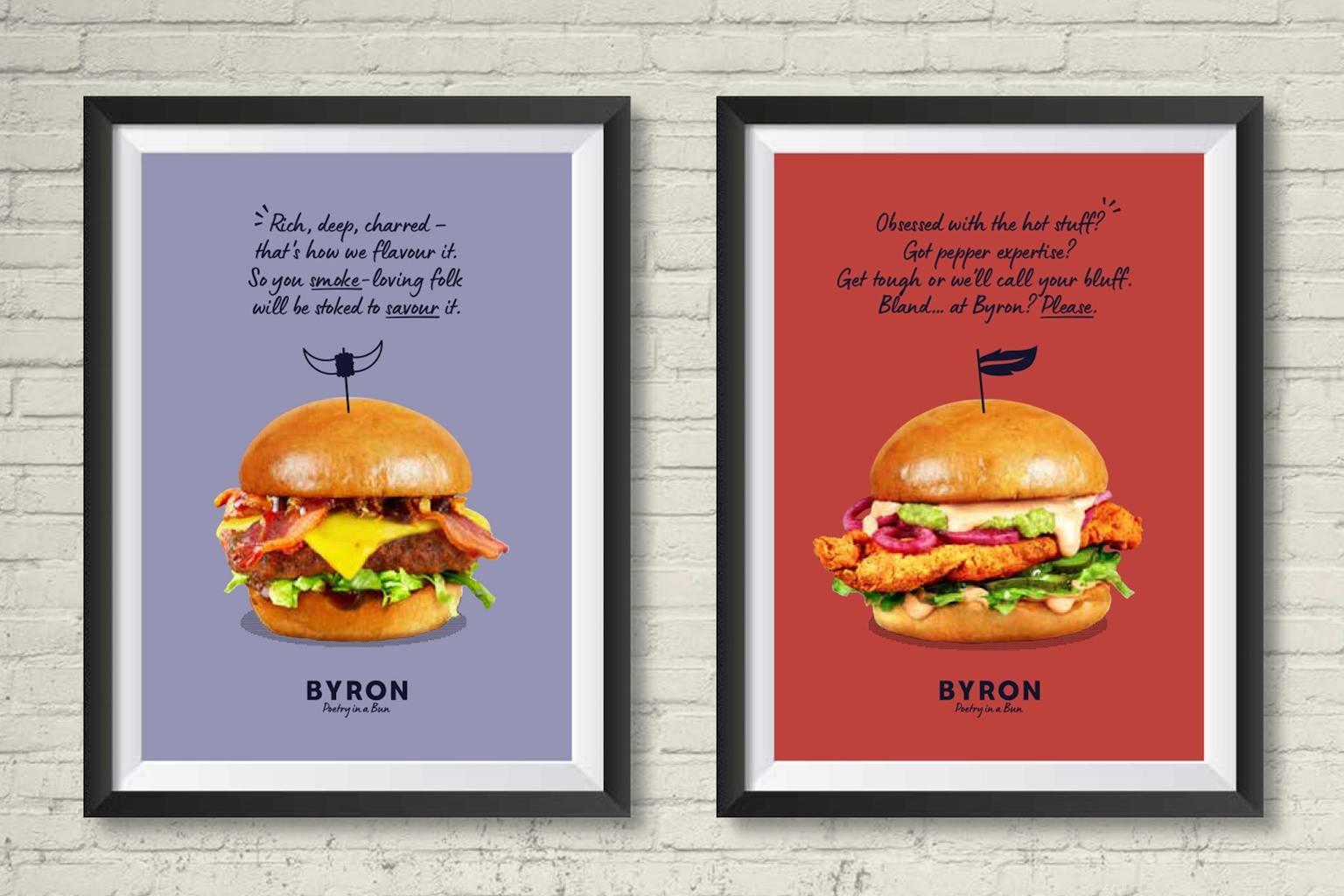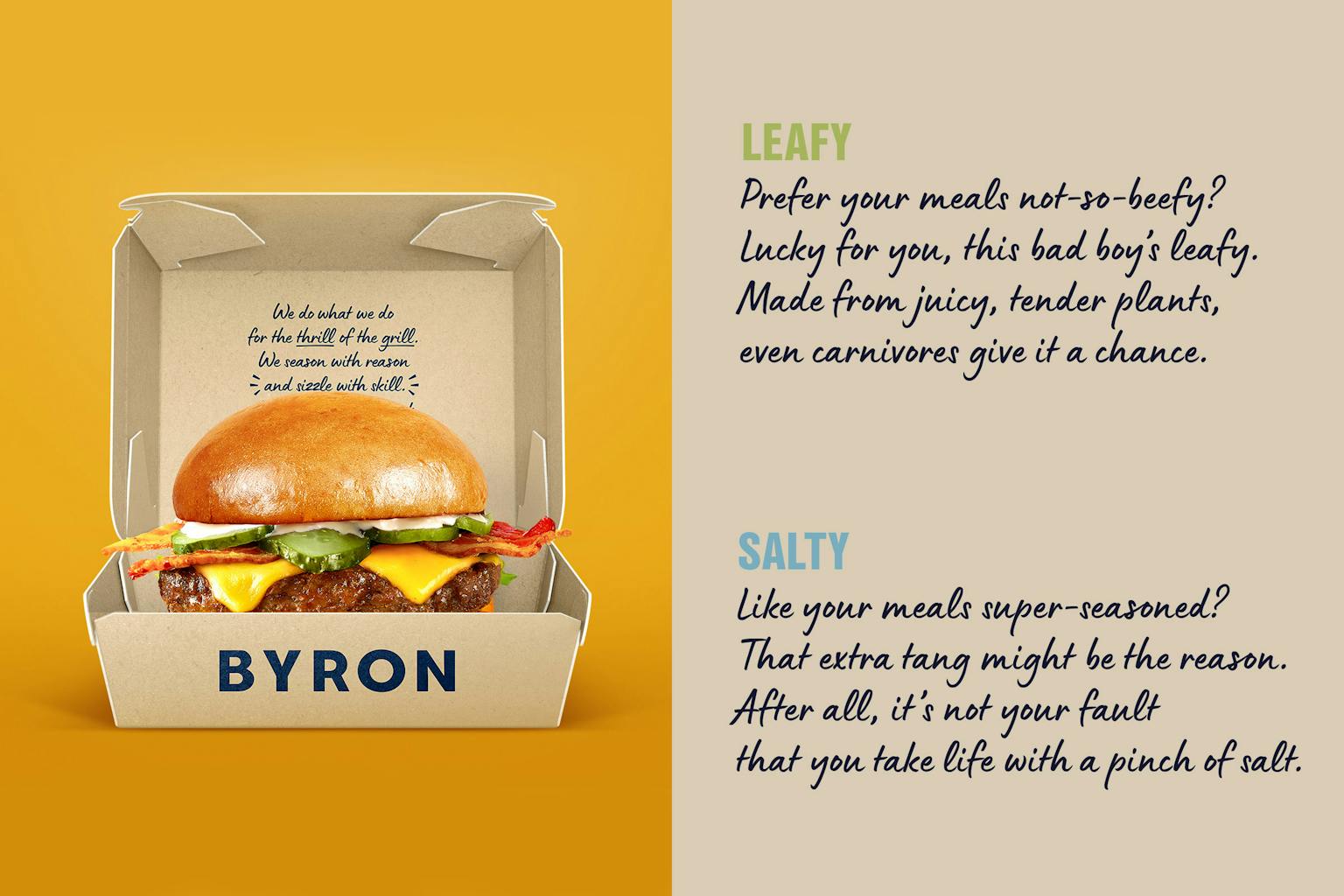ByronTurning patties into poetry

With patties pressed from the finest meats and burgers stacked with an artist’s touch, the food Byron makes is poetry in a bun. We helped put that poetry into motion.
It was time for Byron to beef up their branding. Inspired by their famous namesake, they developed a strategy all around poetry. There was just one thing missing. Poems.
First we wrote a lyrical manifesto, capturing the Byron philosophy in verse form. Then, we came up with rhymes for all the flavours of the menu. We moved onto ketchup bottles, napkins, burger boxes – everything was served with a helping of words.
Finally, we laid out some rhyming rules to help the brand team’s writers. With that, they had the tools to put poetry at the heart of Byron. Just the way it should be.


Byron's ‘Poetry in a

Poetry on pack and flavour

Condiment couplets

Site hoardings
